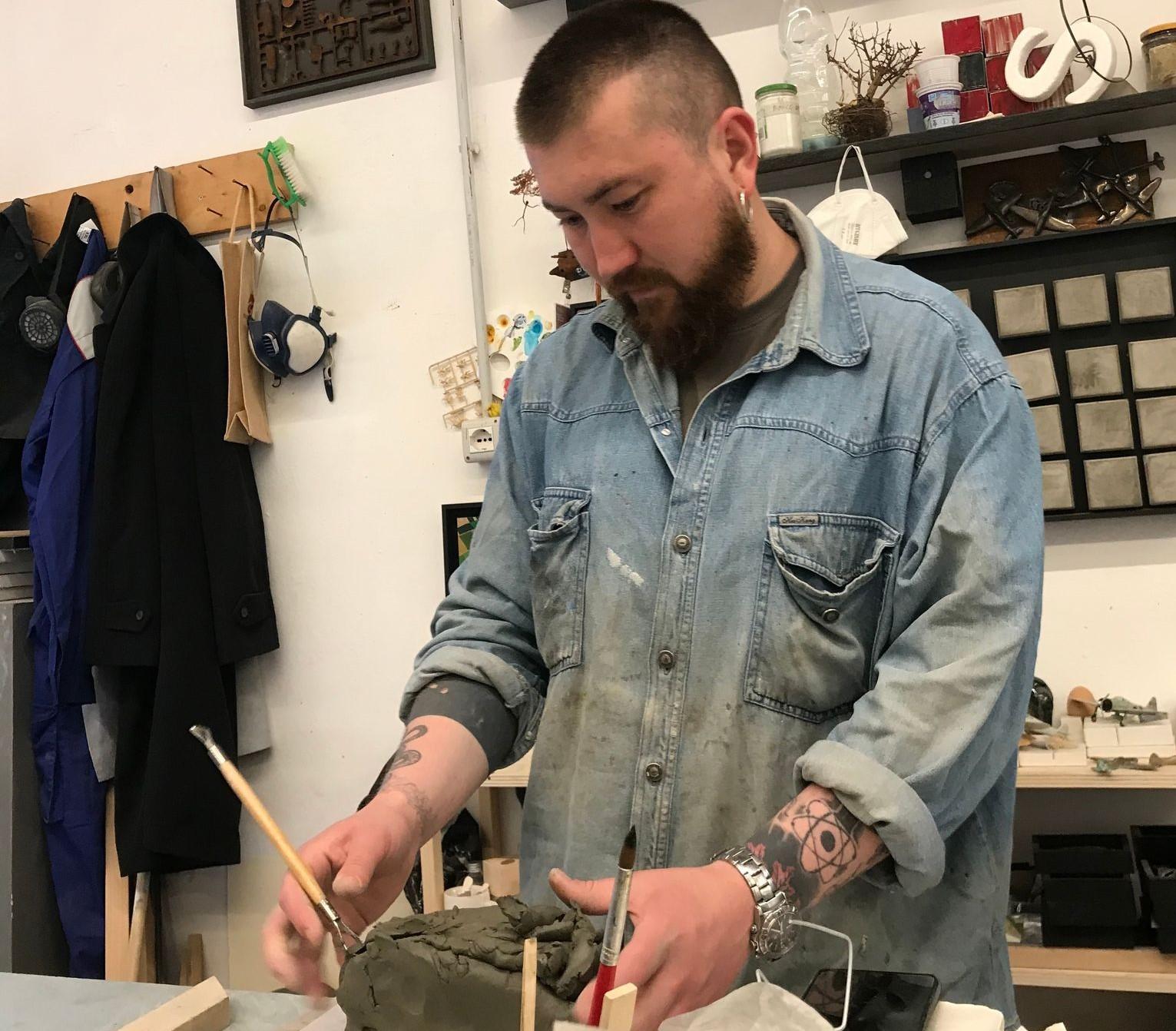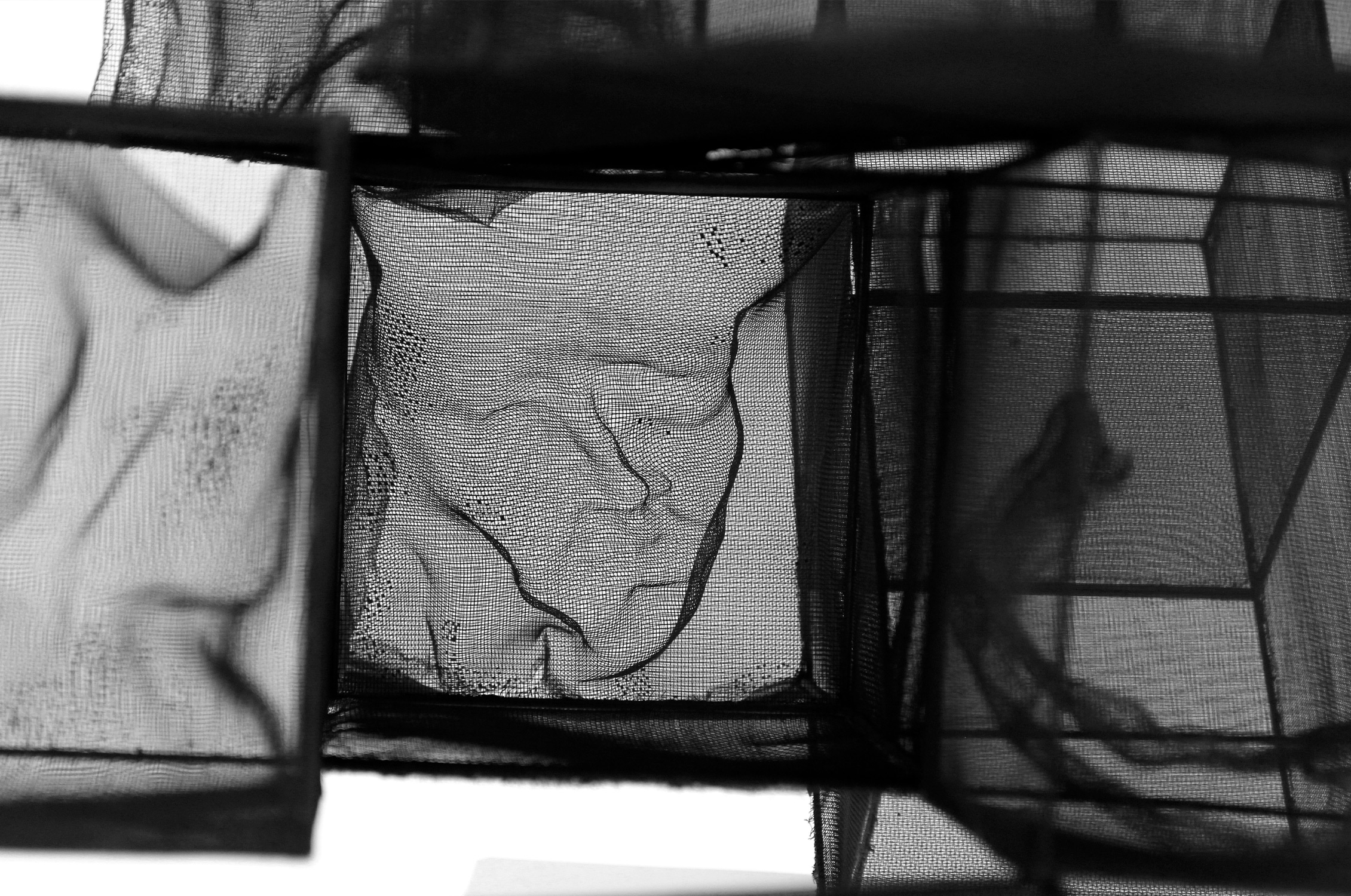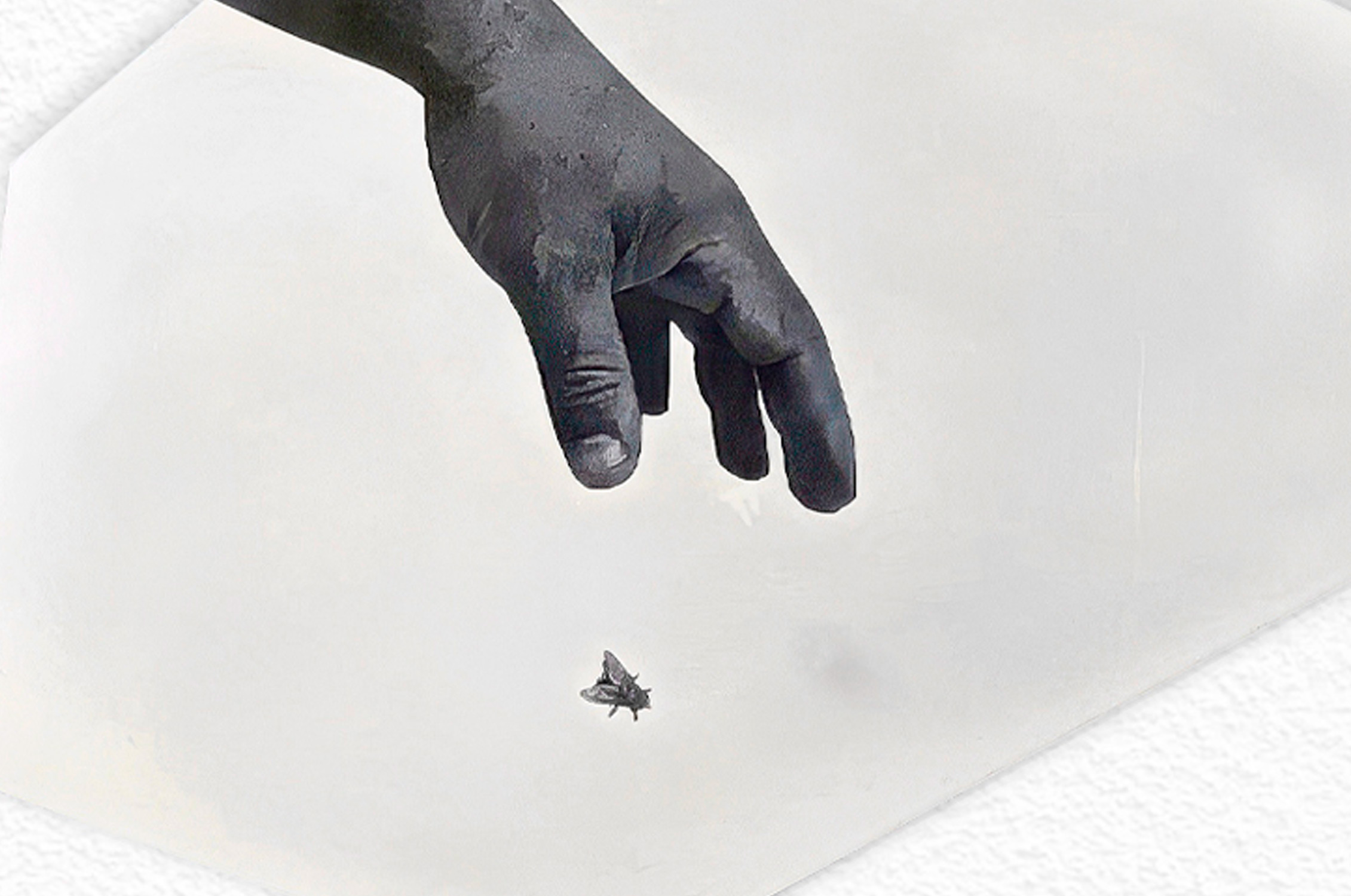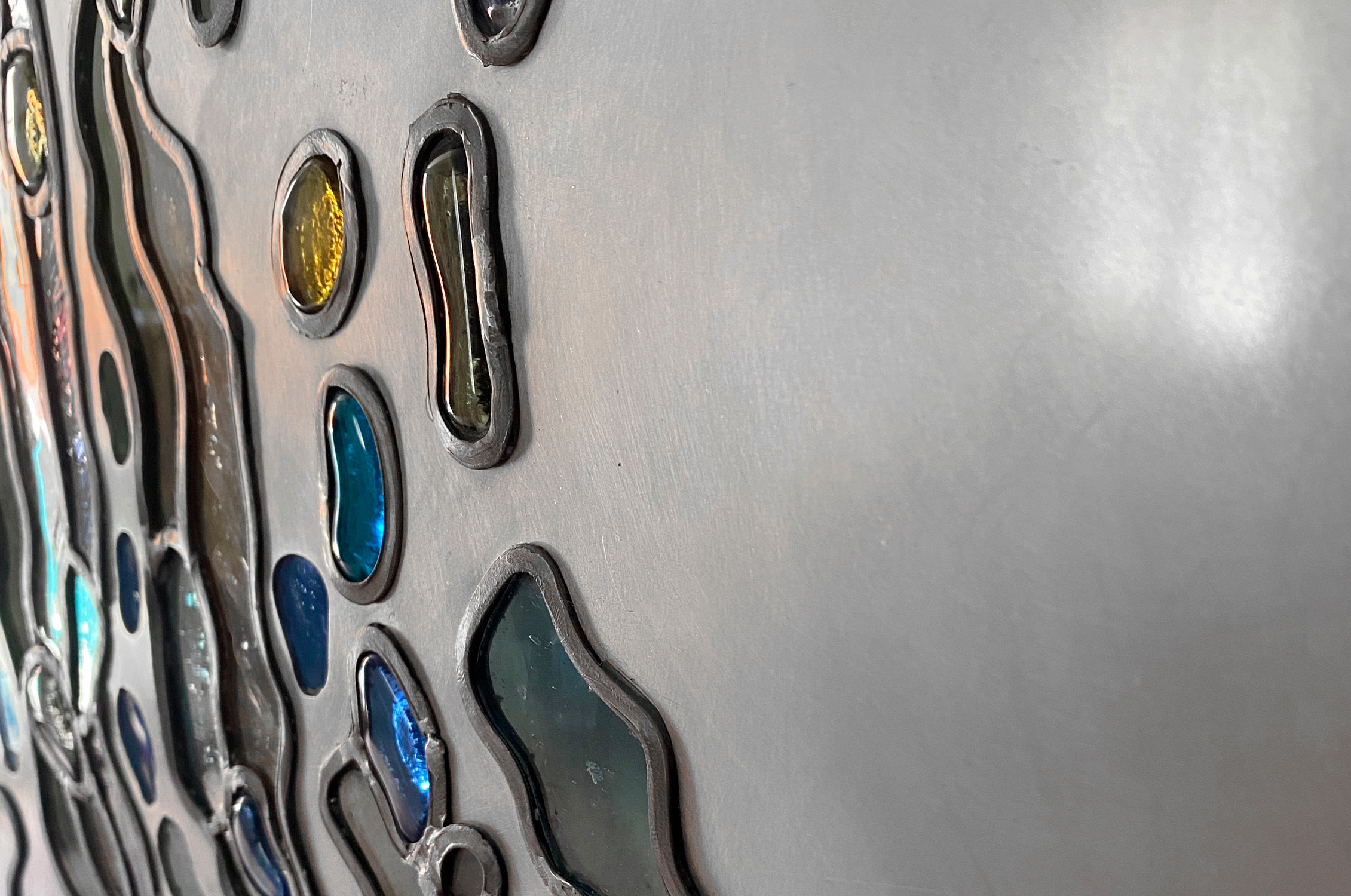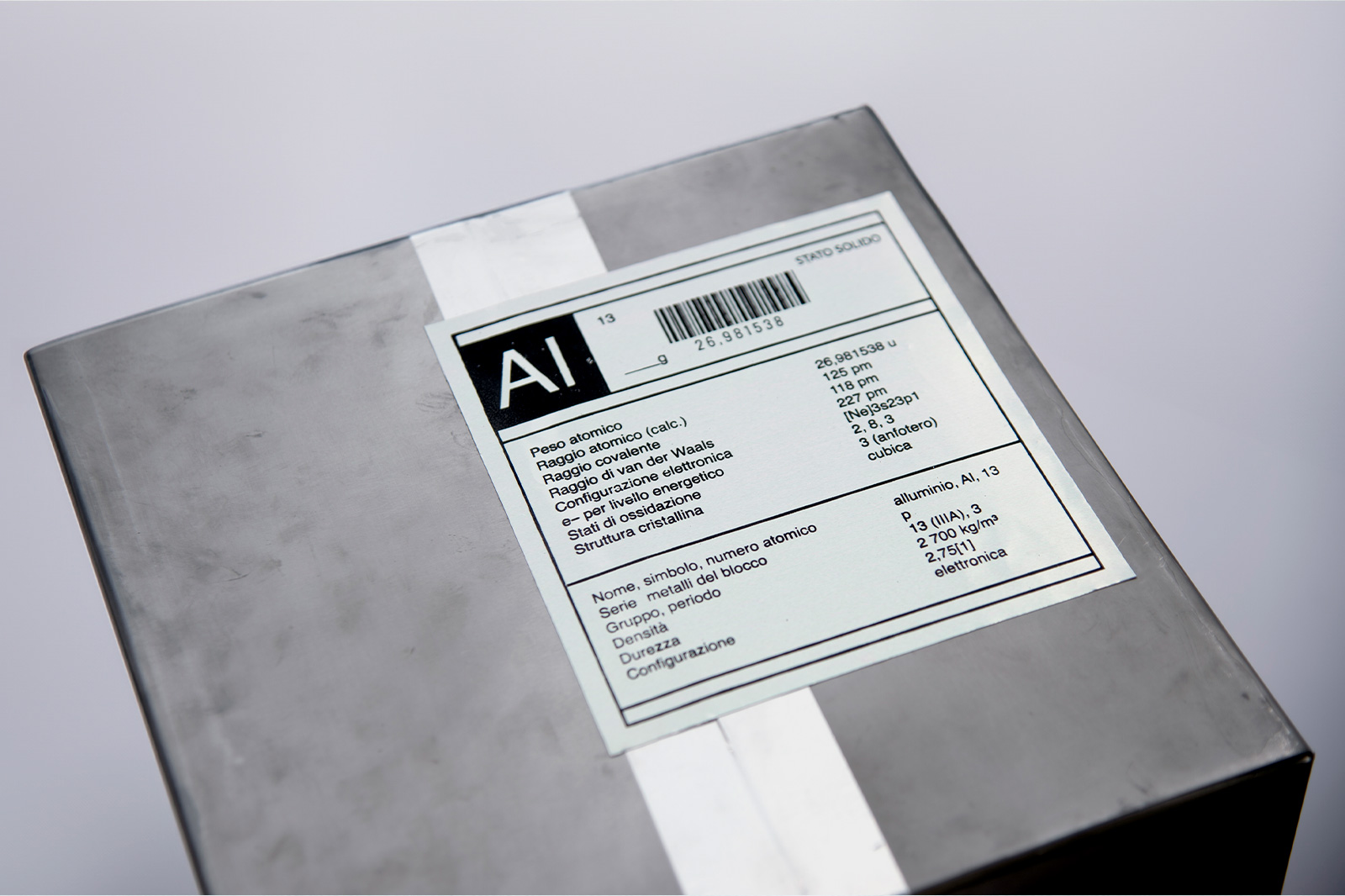SPECIAL MENTION OF THE JURY 2022
Conversation with Taras Halaburda
by Ilaria Ferri
He was born in Mlyniv (Ukraine) in 1992 and moved to Italy at a very young age, Taras Halaburda obtained a high school diploma at the “Filippo Figari” State Institute of Art and then continued his studies graduating in Sculpture at the Academy of Fine Arts of Sassari “Mario Sironi”. He continued to train by attending the Monumental Sculpture and Public Art course at the Academy of Sassari, where he currently also works as a tutor. Precisely in 2022, he was commissioned by the organization of the Strega Prize to create the sculpture that is donated to the winner at each edition. He has been the protagonist of various exhibitions in institutional places in the Sardinian capital such as the Mas.Edu Museum of Contemporary Art of Sassari, the National Archaeological Museum G.A. Sanna, the National Art Gallery of Sassari and winner of various prizes such as the Zaion Gallery Award in Biella, the National Competition of Visual Arts Moussa Aziz Abdayem in Castelnuovo di Porto (RM), winner of the Absolute First Prize, with scholarship, a competition promoted by The International Association of Lions Club and Lions Club Valle Tiberina.
Taras Halaburda received a special mention from the jury of the 2022 edition of the COMEL Award, Endless Aluminium, thanks to the work Buon’ora delle cose, which proposes a reflection on the use of good wishes words such as “good morning“, “good appetite”, “good life” often used superficially or worse with hypocrisy. “They are often phrases without substance that we repeat automatically, out of habit,” says the artist, “but when these phrases are sincere and pronounced with generosity, they become a sort of medicine. After a ‘good day‘, the day can become really good. It is therefore important to focus on each person, their words, and their real intentions and feelings. Words and their use, communication therefore, are important to the Ukrainian artist, and art, in particular, is a way for him to express himself ‘telling any story with or without words’.
The work Buon’ora delle cose is striking for its particular use of materials: it was made using cold casting and various resins and compounds. The artist himself told us: “I like experimenting with new materials. Working with resins through molds is like unwrapping presents, you never know what will come out. This love for materials, which Taras Halaburda chooses according to the curiosity of the moment or a particular preference, naturally led him to choose sculpture as his main expressive language.
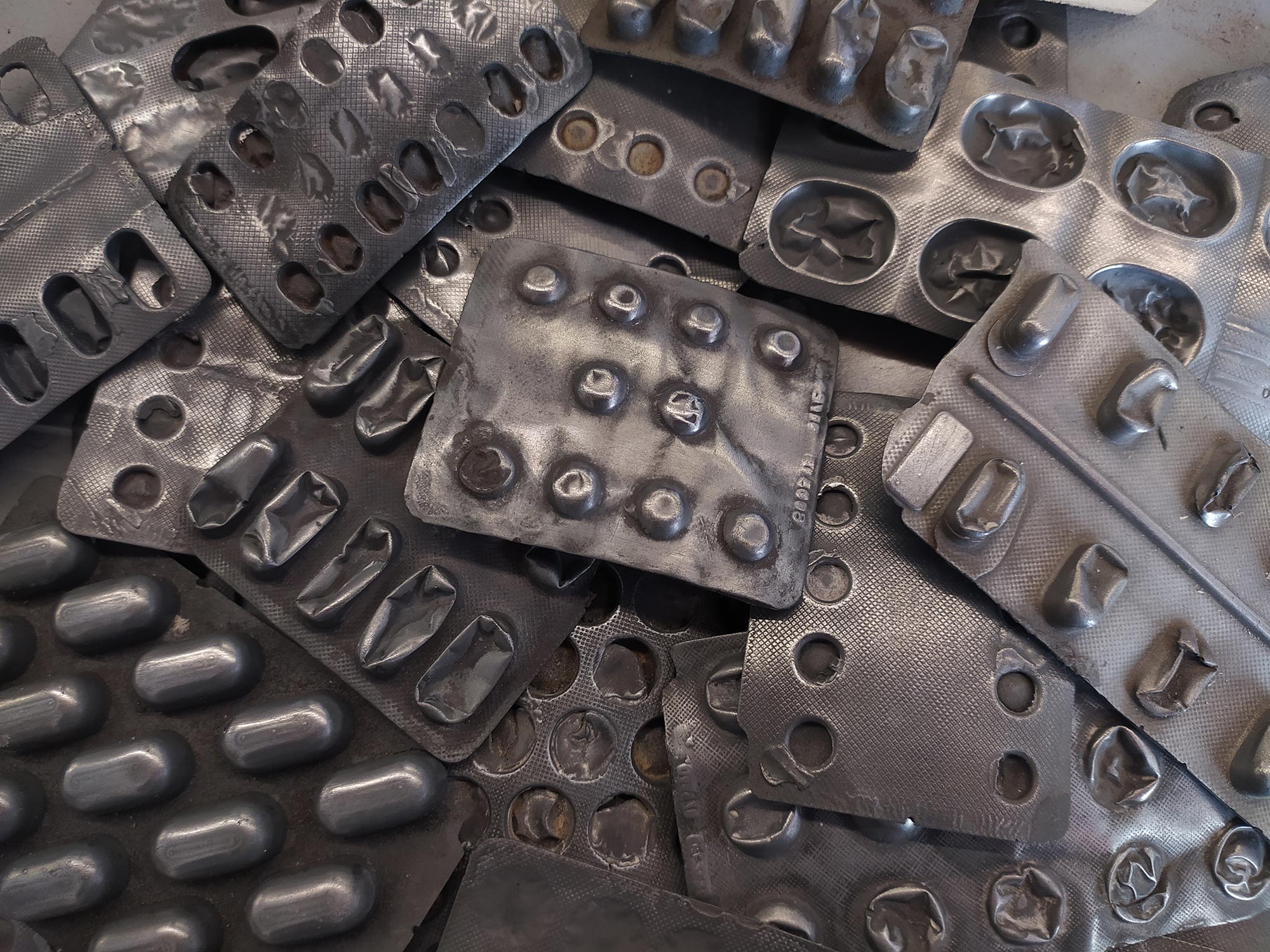
Blister
The sculpture is a complex language that cannot be separated from precise technical expertise, and therefore from constant study and application that allows him to work on materials using tools and machinery of various kinds. The sculptor thus embarks on a difficult path not only during the working process but also afterward in the display and preservation of the work created. “In return,” Taras concludes, “sculpture offers endless possibilities to tell a thought, it is complete, which is precisely why I chose to work in three dimensions”.
Taras Halaburda in his studio
The artist recounts that “The passion for this subject was born a long time ago when as a child I used to make toys out of what I found around” and it grew day by day, leading him to choose a specific course of study and then a specific career, which was then directed and enriched by the presence of masters who made him broaden his horizons, multiply his points of view and instilled in him new aspirations and goals. So much so that he wanted to put himself to the test by participating in various artistic competitions. 2022 was a very happy year from this point of view because, in addition to being a finalist for the COMEL Award, Taras Halaburda won a competition expressly dedicated to academia to create the sculpture that then went as a gift to the finalists of the Premio Strega, somehow bringing words and art together in a work.

